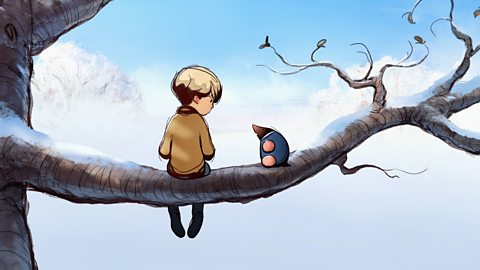No parent ever wants to think about their child encountering sexual abuse. At the same time, it can be useful to give our kids knowledge that helps protect them from anyone displaying signs of inappropriate behaviour.
For the past 10 years, the National Society for the Prevention of Cruelty to Children (NSPCC) has been helping parents, carers and teachers keep children safe with its Talk PANTS campaign. It encourages youngsters to speak to a safe adult they trust about anything they feel upset or worried about - and that it’s fine to say ‘No!’ to anyone who asks questions or makes suggestions that make them feel uncomfortable or to any unwanted touch - even to a family member or someone they know.
Understandably, parents can still have questions and concerns about tackling such a difficult subject, especially with younger children. Singer Heidi Range is an NSPCC Campaigner for Childhood and, to mark the Talk PANTS anniversary, she spoke to the NSPCC’s local campaigns manager Emma Motherwell about the various ways of navigating a tricky but important conversation.
What is Talk PANTS and who is Pantosaurus? Heidi Range investigates...
Pantosauruswhat’s in your pants belongs only to you, your pants cover up your private parts. Your private parts belong only to you…
HeidiToday we here to learn more about the NSPCC’s Talk PANTS campaign, and to learn all about Pantosaurus.
Heidi I’m joined by Emma; Emma thank you for chatting to me today. Can you explain more about the campaign and why it was started?
Emma Talk PANTS is a really, really fun campaign but has a really important message behind it. So, it’s about the prevention of sexual abuse with children.
Heidi A lot of parents wouldn’t think of having this conversation, especially with little ones.
Emma It’s about making those conversations as easy as possible, using really age-appropriate simple language that’s not going to scare our children, not going to frighten them. But is done in a way that it’s fun and they get to learn at the same time.
Heidi I’ve noticed with my daughter - she loves reading out the pants rules, they seem to take that really seriously, which is a great thing.
Emma and that’s why PANTS is really simple. So you use each letter of PANTS for each of the messages so we’ve got, ‘Privates are private.’ We’ve got ‘Always remember your body belongs to you.’ We’ve got ‘No means no,’ which the kids love shouting out. ‘Talk about secrets that upset you,’ so we know that secrets are used as quite a coercive tool with children, so we help them to identify, you know what’s a good secret, what’s a bad secret. And the last one the S is ‘Speak up somebody can help,’ so thinking about all those people around a child that could support them whether it’s you as a parent or whether it’s someone at school or nursery for example.
Heidi My daughter loves shouting the ‘no means no’ very loudly.
Emma Yeah they do and that makes it fun doesn’t it, they are all shouting it at the top of their lungs it’s brilliant.
Heidi When we spoke about it the other night she’d had an accident at school that day, I said to her you know ‘where did you change,’ and she said ‘oh mummy I went to the bathroom because my privates are private.’ Which was you know amazing for me to hear, I’m like she’s got the message, so I feel like I’m helping to protect her you know having these conversations.
Emma Yeah absolutely.
“Make those conversations as easy as possible”
Heidi is a mum to two daughters, born in 2018 and 2021. As she said to Emma, “A lot of parents wouldn’t think about having this conversation, especially with little ones.”
Emma responded: “It’s about making those conversations as easy as possible, using really age-appropriate, simple language that’s not going to scare our children, not going to frighten them, but is done in a way that it’s fun and they get to learn at the same time.”
The fun aspect comes courtesy of Pantosaurus, a dinosaur who helps deliver the Talk PANTS message via a story book and a catchy song. The 'PANTS' acronym our kids learn from Pantosaurus and his pals, either at home or in school, carries an important message without ever referring to sex…
P - Privates are private.
A - Always remember your body belongs to you.
N - No means no.
T - Talk about secrets that upset you.
S - Speak up to somebody that can help.
Heidi talks to the NSPCC about when to have those tricky conversations.
Heidi For parents it’s a scary conversation to have and you want to navigate it in the right way, get that conversation going.
Emma PANTS is really about little and often. So it’s not a big formal chat. It’s about dropping it in where is comfortable and where’s relevant for you guys. Some parents do it when they’re doing kind of bath time, or bed time so their child might be getting changed and they can talk about what’s covered by their underwear, if they’re going swimming what’s covered by their swimwear. Some parents tell us that their kids tend to get a bit chatty in the car cause they’ve got nowhere else to go.
Heidi Nothing else to do.
Emma Exactly, they’re relatively undistracted so it’s where it feels comfortable and depending on the age and development of your child what feels right for you really.
Heidi And also language obviously you don’t want to frighten them with scary words.
Emma Well that will depend on the age of the child, and you know a parent knows best how they want to approach it with their child but the thing about PANTS is that we don’t include any scary words, you know this isn’t a conversation about the birds and the bees. This is a conversation about simple things that can help to keep them safe so we don’t use any scary terms or words that we know parents might be wary of and it’s up for parents to kind of manage that conversation depending on how old their child is, their development stage and it’ll probably be a conversation that then starts to develop as they get a bit older.
Heidi I found that with my daughter cause we read it at bedtime, we read it numerous times and she finds it a really fun story so like you say it’s not a scary conversation for her it was more for me to help us as parents.
“I feel like I’m helping to protect her”
Heidi has already made stories of Pantosaurus part of the routine at home, and as she explained, it had a positive impact on her eldest daughter…
“When we spoke about [Talk PANTS] the other night, she’d had an accident at school that day.
“I said to her, ‘Where did you change?’ and she said, ‘Oh Mummy, I went to the bathroom because my privates are private,’ which was amazing for me to hear. I’m like, ‘She’s got the message!’ So I feel like I’m helping to protect her, having these conversations.”
At the same time, Heidi noted that these conversations can be scary for parents.
Emma said: “PANTS is really about ‘little and often’. It’s not a big formal chat, it’s about dropping it in where’s comfortable and where’s relevant… Some parents do it when it’s bathtime or bedtime; their child’s getting changed and they can talk about what’s getting covered by their underwear - going swimming, what’s covered by their swimwear.”
Interestingly, parents have also shared how car journeys can be useful times to talk, as this is when children can be chattier than usual.
“The thing about PANTS,” Emma added, “is that we don’t include any scary words. This isn’t a conversation about the birds and the bees. It’s a conversation about simple things that can help keep them safe.”
Why are conversations with your child so important?
Heidi It sounds like a tough topic for children to be involved in, what do you say to that?
Emma I mean it’s never the responsibility of a child to keep themselves safe from this kind of abuse but this is really about supporting parents, teachers, those trusted adults around a child to do what they can to keep their child safe, all of our responsibility as adults.
Heidi I’ve spoken to all my friends about it, you know cause you want to encourage them to help protect the children.
Emma So it’s great that you are, because if you think back to the conversations that maybe your parents had with you they were often focused around kind of stranger danger or we got taught to cross the road really safely though didn’t we, and so this is about ok how can we make conversations about this as easy and as frequent as those one’s that we are perhaps more familiar with. And knowing what we that actually the vast majority of sexual abuse with children is perpetrated by somebody known to them. So if we just focus on stranger danger as a conversation we’re, you know, we’re not doing the full job that we need to.
Heidi It’s been great to chat to Emma from the NSPCC today. She’s given me a lot of confidence in how to talk to my children, her advice was great and I’m excited to share that with my friends. I’m excited for parents to see what we’ve discussed today and for them not to be afraid to start these conversations with their children, it’s our way of protecting our children of helping them and Pantosaurus is my new idol.
Pantosaurus Your private parts belong only to you, if someone wants to see them tell them no. If someone wants to see them tell them no.
“It’s our way of protecting our children”
Following her talk with Emma, Heidi shared how positive the Talk PANTS campaign made her feel in future discussions with children about the dangers of sexual abuse.
She said: “It has been great to talk to Emma from the NSPCC today. She has given me a lot of confidence in how to talk to my children, her advice was great and I’m excited to share that with my friends, I’m excited for parents to see what we’ve discussed today and for them not to be afraid to start these conversations with their children.
“It’s our way of protecting our children, of helping them - and Pantosaurus is my new idol," she smiled.
If you have any concerns about a child's safety or wellbeing, contact the NSPCC Helpline on 0808 800 5000 or [email protected].
Talk PANTS can be found here on the NSPCC website
There are also links to helpful organisations on BBC Action Line.

More from BBC Bitesize Parents' Toolkit…
Parents' Toolkit
Fun activities, real-life stories, wellbeing support and loads of helpful advice - we're here for you and your child.
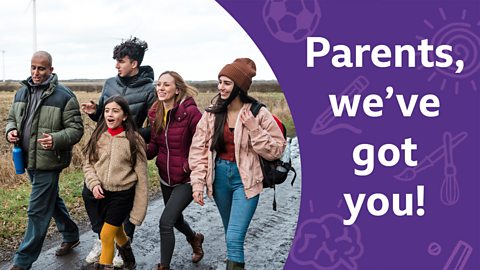
Four steps to chatting with your child about their mental health
Starting a conversation about mental health isn't easy. Especially if your child is reticent to open up. This advice from the charity Young Minds may help.
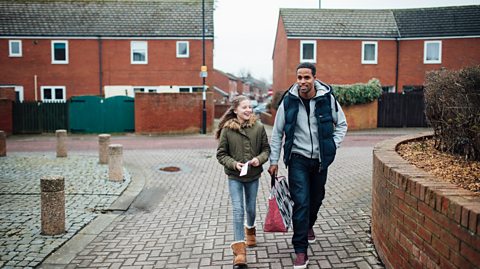
How to tackle anxiety with Dr Anna Colton
Dr Anna has made seven short films with easy to learn techniques.
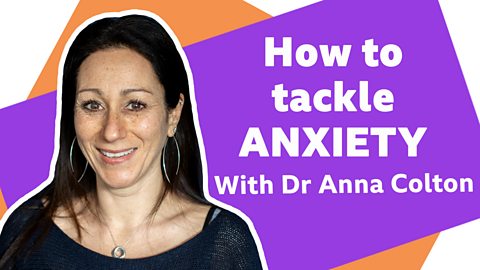
Bullying: How to spot it and what to do about it
For parents - what are the signs of bullying, how do you deal with it and what if your child is involved in bullying?
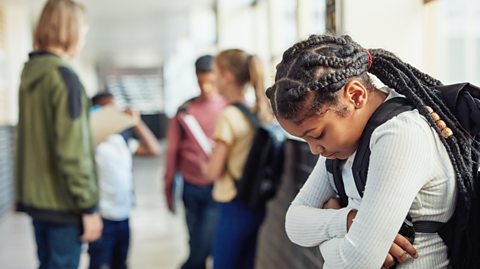
How to help your child understand bereavement and support them in their grief
Death can be hard to explain to a child. Here are some tips from the charity Child Bereavement UK.

The Boy, the Mole, the Fox and the Horse: How the film can help you talk with your child about their feelings
How parents can use this beautiful animated film to chat to their child about kindness, friendship and facing up to fears.
